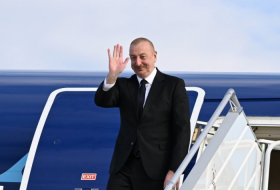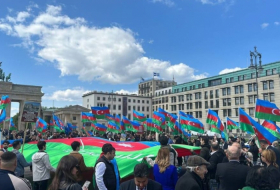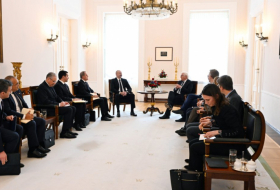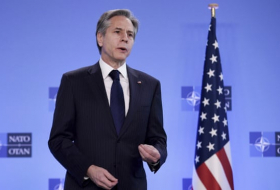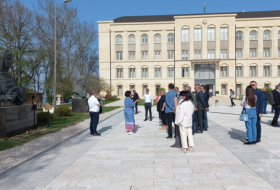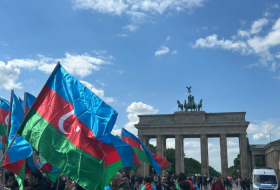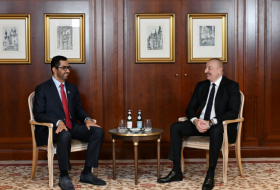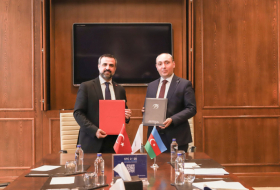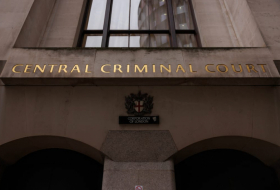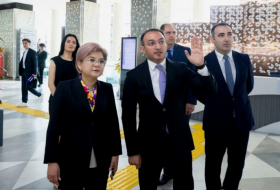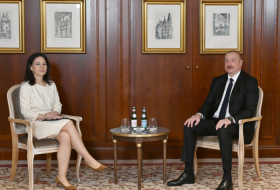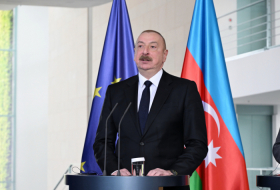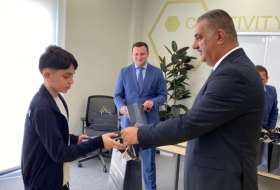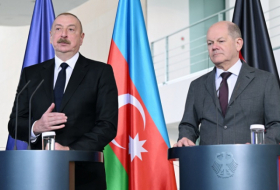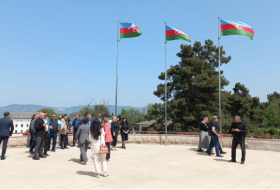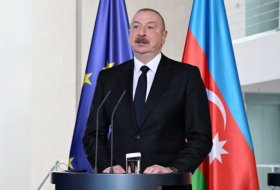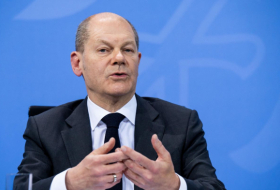Trump defends his son and plays down differences with French Leader

Mr. Trump came to Paris at the invitation of Mr. Macron to take part in Bastille Day celebrations to mark the 100th anniversary of America’s entry into World War I.
As the two leaders, an odd couple on the international stage, faced the news media after a private meeting at the Élysée Palace, they sought to play down sharp differences over trade, immigration and climate change. Mr. Macron looked on as the president defended his son in the scandal over possible links between Mr. Trump’s presidential campaign and the Russian government.
Mr. Trump said Donald Trump Jr. had merely been responding to a person offering opposition research on his opponent, Hillary Clinton — a common practice in presidential campaigns. “Politics is not the nicest business,” he said, noting that he had received similar offers.
The president tried to deflect attention from his son by asserting that President Barack Obama’s attorney general, Loretta E. Lynch, had approved a visa for the Russian lawyer, Natalia Veselnitskaya, to enter the United States.
Ms. Veselnitskaya did receive a waiver from the Justice Department in October 2015 to enter the United States to defend a Russian client involved in a criminal case in New York. Immigration lawyers said the waiver, known as a “significant public benefit parole,” is standard practice in such cases.
On climate change, Mr. Trump acknowledged his differences with Mr. Macron — highlighted when Mr. Trump announced six weeks ago that he would withdraw the United States from the Paris climate accord. When asked whether he would reconsider his decision, the president left the door open to some kind of unspecified compromise.
“Something could happen with respect to the Paris accord,” Mr. Trump said. “We’ll see what happens.” He added, “If it happens, it will be wonderful; if it doesn’t, that will be O.K., too.”
Mr. Macron also acknowledged the disagreement over the climate accord, but noted that the two leaders agreed on many other issues. He also said he understood Mr. Trump’s motivation in withdrawing, even if he disagreed with him. “My willingness is to continue to work with the United States,” he said. “I understand it is important to save jobs.”
Asked for his assessment of President Xi Jinping of China, Mr. Trump referred to him as a “terrific guy” and said the two men had a good working relationship, though he reiterated his disappointment that China had not done more to pressure North Korea on its nuclear and missile programs. “Probably he could do a little bit more,” Mr. Trump said. “But we’ll see.”
At several points during the news conference, Mr. Trump reached over to touch Mr. Macron’s arm. And when a French journalist asked Mr. Trump if he believed that his host would keep France safe from terrorism — something he had criticized the previous French government for failing to do — Mr. Trump went out of his way to praise Mr. Macron.
“You have a great leader, a tough president,” he said. “He’s not going to be easy on people who are breaking the law.”
Then, turning to Mr. Macron and leaning into his microphone, Mr. Trump added: “You better do a good job, please. Otherwise, you’re going to make me look bad.”
Mr. Trump and Mr. Macron appeared to have put initial tensions in their relationship behind them in the service of developing a working partnership, and in the love of a parade.
Mr. Trump loves the trappings of the presidency, whether in the United States or in another country. That includes occupying the most prestigious seats at the Bastille Day ceremony, a pomp-filled parade steeped in military tradition and hardware.
Mr. Trump, for his own inaugural parade, had expressed a desire to include tanks and fighter jets. That wish was not granted, but Mr. Trump remains transfixed by displays of military power.
He arrived in Europe once again leaving behind a trail of questions related to Russian meddling in the 2016 election, flying to the more welcoming arms of a foreign leader with whom his bond is still fragile.
Mr. Macron and Mr. Trump have had an unusual relationship, characterized in public primarily by a few forceful, awkward handshakes — particularly their first, which Mr. Macron made clear was an effort to show the American president that he could not be bullied.
So Mr. Trump’s decision to accept Mr. Macron’s invitation startled some of his aides.
For the embattled American president, trips overseas — the visit to France will be his third abroad in two months — have been a surprising pleasure, a reprieve from days filled with cable news coverage of the Russia investigation, and swirling questions of whether his campaign aides worked in concert with the foreign power.
For Mr. Macron, who took office in May, the visit is a chance to establish himself, if only by default, as Mr. Trump’s first point of contact in Western Europe, at a time when Britain is distracted by its plans to leave the European Union, and Germany is focused on its national elections in the fall.
It is an unlikely partnership, given Mr. Trump’s stated admiration for Marine Le Pen, the far-right populist whom Mr. Macron defeated in May, and the leaders’ radically different worldviews. Mr. Macron is a pro-European technocrat who admires Silicon Valley, while Mr. Trump is an “America First” nationalist who is skeptical of multilateral institutions like the European Union.
Mr. Trump’s visit to Paris began with an airport arrival ceremony. He then attended a meeting with troops at the American ambassador’s residence while Melania Trump, the first lady, toured the Necker children’s hospital.
“I always say how important it is to have, you know, teachers in children’s lives,” Mrs. Trump said. “It’s the most important. They see them every day and spend so much time. It’s very important in the child’s life.”
“You look very good. Very strong,” Mrs. Trump told a 14-year-old girl in a wheelchair. “One day you will be walking and running.”
At the ambassador’s residence, Mr. Trump joined a lunch that was also attended by Mike Pompeo, the C.I.A. director; Lt. Gen. H. R. McMaster, the national security adviser; and Gen. Joseph F. Dunford Jr., the chairman of the Joint Chiefs of Staff. The president also addressed military personnel and their families, before departing for the Hôtel National des Invalides, a sprawling patchwork of museums that includes the tomb of the French emperor Napoleon Bonaparte.
At one point when the two presidential couples were together, Mr. Trump told Mrs. Macron, “You’re in such good shape.”
Later, the two leaders had a meeting at the Élysée, the presidential palace, followed by the joint news conference. The men capped the day with a dinner at Le Jules Verne, the elite, blue-lobster-serving restaurant ensconced in the Eiffel Tower.
That meal was something of a surprise, considering Mr. Trump’s fondness for ketchup-doused steak and cheeseburgers.








